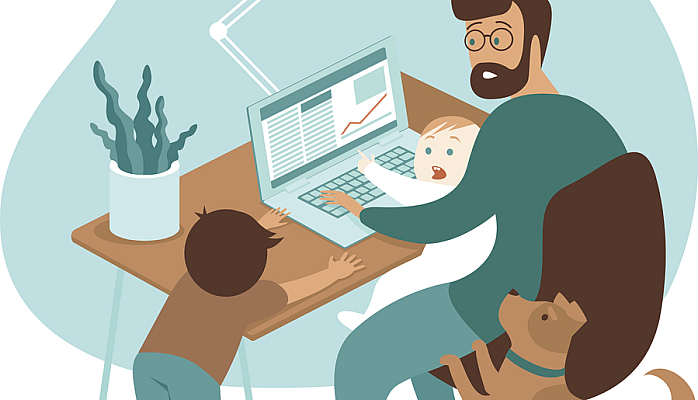
Guide to first time home buying
Buying your first home is an important step in achieving your long-term financial, emotional, and lifestyle goals. It’s also an incredibly complex process, filled with numerous steps and requirements.
Fortunately, there are a few things you can do to prepare for the home buying process. These steps will make the entire process a lot easier on you and your wallet.
1. Find a Lender
Buying a home is a big, complicated financial, and personal decision. It's full of new legal terms, people to meet (like mortgage lenders and real estate agents), and steps to take - from determining your budget to finding the right house.
If you're a first-time home buyer, there are lots of resources to help you get through the process. Whether it's a loan for a down payment or help with closing costs, there are programs available to make the process easier and cheaper.
Step 1: Find a LenderOne of the most important aspects of buying your first home is selecting a lender you can trust. You want a lender that will be easy to work with, offer competitively priced loan programs and provide excellent customer service.
You should also ask about any special first-time home buyer programs the lender offers. If they don't, you may be better off looking elsewhere. There are plenty of great, local banks and credit unions that have a good reputation for customer service and can guide you through the home-buying process.
2. Create a Budget
First-time homebuyers need to create a budget before starting the process. This will help them determine how much money they can afford to spend on a house and will also allow them to set aside a small amount of money each month to save for a down payment.
The first step in creating a budget is to gather all of your financial records, including bank, credit card, and investment accounts, paycheck stubs and benefits statements. Then, make a list of your fixed expenses (regular monthly bills) and variable expenses (those that change from month to month).
Once you have a good understanding of your spending habits, you can start figuring out where you can cut back and save. You might find that you can stop paying for a subscription beauty box or get rid of unnecessary streaming services.
While budgeting may be intimidating, it is essential for any homeowner who wants to ensure that they are staying on track with their finances. It can help you manage your debts, pay for unexpected emergencies, save for retirement and build an emergency fund.
3. Create a List of Needs and Wants
Creating a list of needs and wants is an essential part of the first-time home-buying process. It can help you prioritize your home search and narrow down the homes that fit your family’s needs.
Needs are things that are necessary to your everyday life, such as a home that has a kitchen or bedrooms for your children. Wants are things that would make your life easier or more fun, like a pool.
When you create your needs and wants lists, keep in mind that your priorities may change over time. For example, a four-bedroom house may be a need when you have children but become a want when they leave the home to go off to college.
Once you have your lists, it’s a good idea to go over them together as a family. This will help you decide which home features are more important to you and which ones you can live without. It also helps your real estate agent understand what you’re looking for so they can find you a home that suits your family’s unique needs.
4. Tour Homes
Home tours are one of the most important parts of the first-time home buying process. This is the chance for you to see if you like the house or not and decide whether or not it’s the right fit for you.
To make your tour more efficient, try to keep a list of what you want in a home. This list can help you identify homes that have those qualities and those that don’t.
Once you’ve created a list, it’s time to start touring homes. It’s a good idea to look for things that you can change in a home and ignore those that you cannot.
You can also use your sense of smell to uncover issues with a home. If a home has mold or mildew, you may be able to smell it. Depending on the extent of the problem, you might need to consider a different home. Taking this step can save you from buying a home that doesn’t suit your needs. It can also help you avoid a stressful home-buying experience.
5. Get an Inspection
If you are buying a home, getting a professional inspection can be one of the most important steps. Not only will it help you decide if you want to move forward with the deal, but it can also be used as a bargaining tool if major problems are found.
Once your offer has been accepted, you’ll want to find a licensed inspector and have them perform a full inspection of the home. A good inspector will take the time to walk you through the entire house and explain his or her findings in detail.
You can ask for recommendations from friends, family, and real estate agents, or look up the inspector on your local Better Business Bureau and state or county licensing board.
Depending on the inspector, their reports may run 100 pages or more. They may also include photographs.
In addition to identifying any problems, your home inspection can give you a better idea of the cost of repairs. It can help you decide whether to proceed with the deal or walk away if you believe that the costs of repairing the home are too high.
6. Make an Offer
Once you've found the home you want, it's time to make an offer. This is a big step, and it's important to get it right.
First, you'll need to decide how much money you can afford to spend on the house. The amount you'll need to put down will depend on the lender and loan program.
You'll also need to consider all of the recurring costs associated with owning a house. These include things like homeowners insurance, property taxes, and maintenance and repairs.
A good real estate agent will help you determine how much to offer and negotiate with the seller for the house you want. They'll be able to help you make the best offer possible, based on your budget and market conditions.
The process of making an offer can be a little intimidating, but it's really not that complicated. With the right preparation and some knowledge, you'll be well on your way to owning your dream home. Just remember to take it one step at a time, and keep working toward your goal!
7. Negotiate
Buying a home is one of the biggest financial moves you can make. The process can be overwhelming, especially for first-time home buyers who have little or no savings to go back to for repairs or other unexpected costs.
Negotiating can be an important part of the home-buying process, but it's also crucial to stay within your budget. You may find that a low-priced offer will get you a house that needs work or is too small for your family.
To avoid a costly mistake, negotiate only after you've found your dream home. This will give you enough time to get your finances in order before making an offer.
In addition, learn as much as you can about any incentives or benefits that are available to first time homebuyers. These can include reduced mortgage rates, down payment assistance or specialty loans. Check with your state's website and consult a real estate professional to determine whether these programs are right for you.
8. Closing
After sifting through home listings, getting an inspection and finding a mortgage lender, the final step in the process of first time home buying is closing. At closing, a deed (for a single-family home or stock certificate for a co-op) is transferred and all parties involved sign papers officially sealing the deal.
In the weeks leading up to closing, your agent and lender should provide you with a booklet explaining your settlement costs, a good faith estimate of how much cash you’ll need at closing and a list of documents you need to bring with you on closing day.
Depending on the type of loan you get, your closing costs may be as low as 3-4% of the purchase price. If you don’t have enough cash on hand, you may qualify for a first-time homebuyer program that covers some of your costs or offers down payment assistance.
If you buy a Fannie Mae home, for example, you can get up to 3% of your closing costs back through their HomePath(r) program. Check your state website or consult a real estate agent to see if your area has any programs available that can help you afford a new home.













Community Discussion